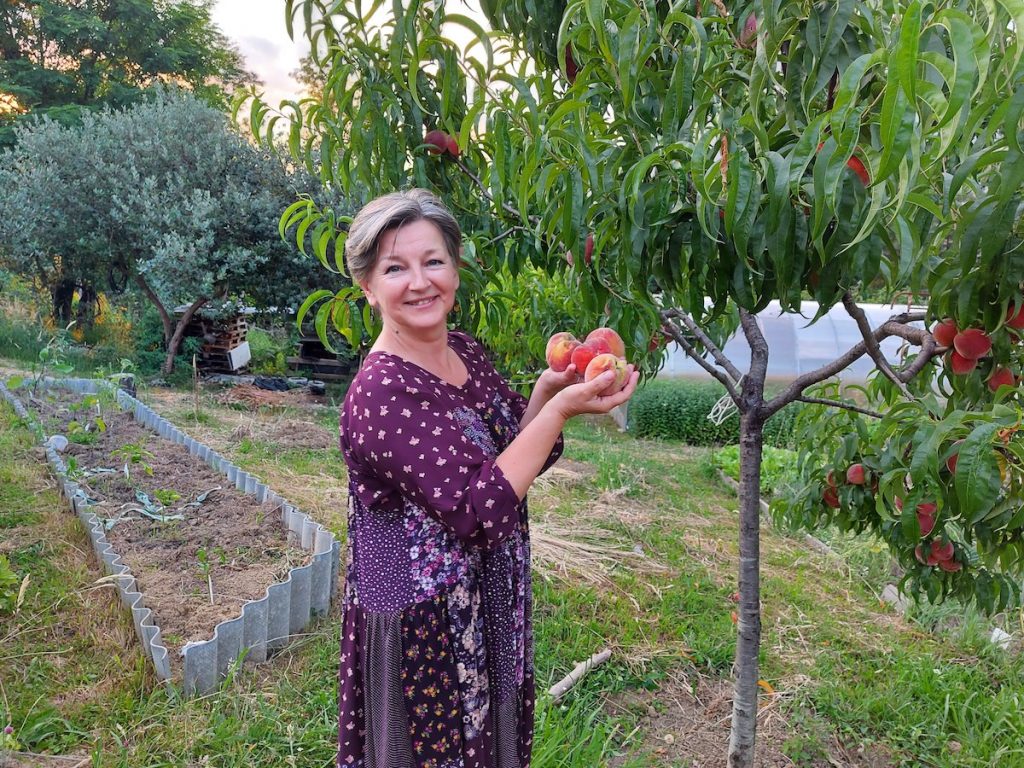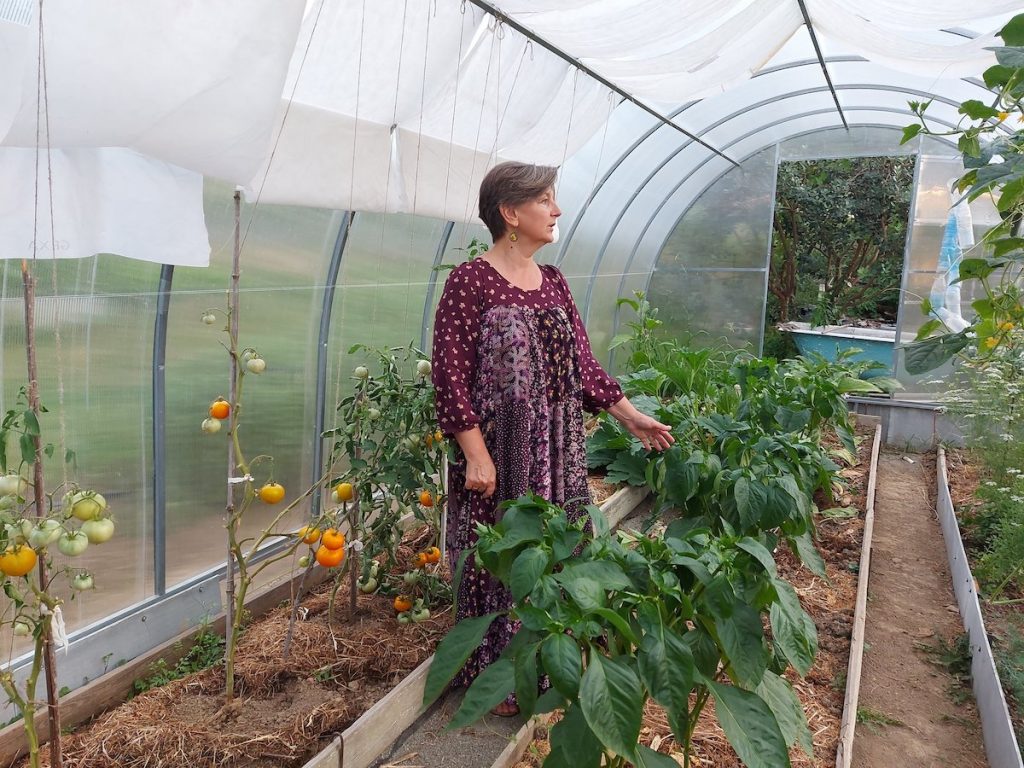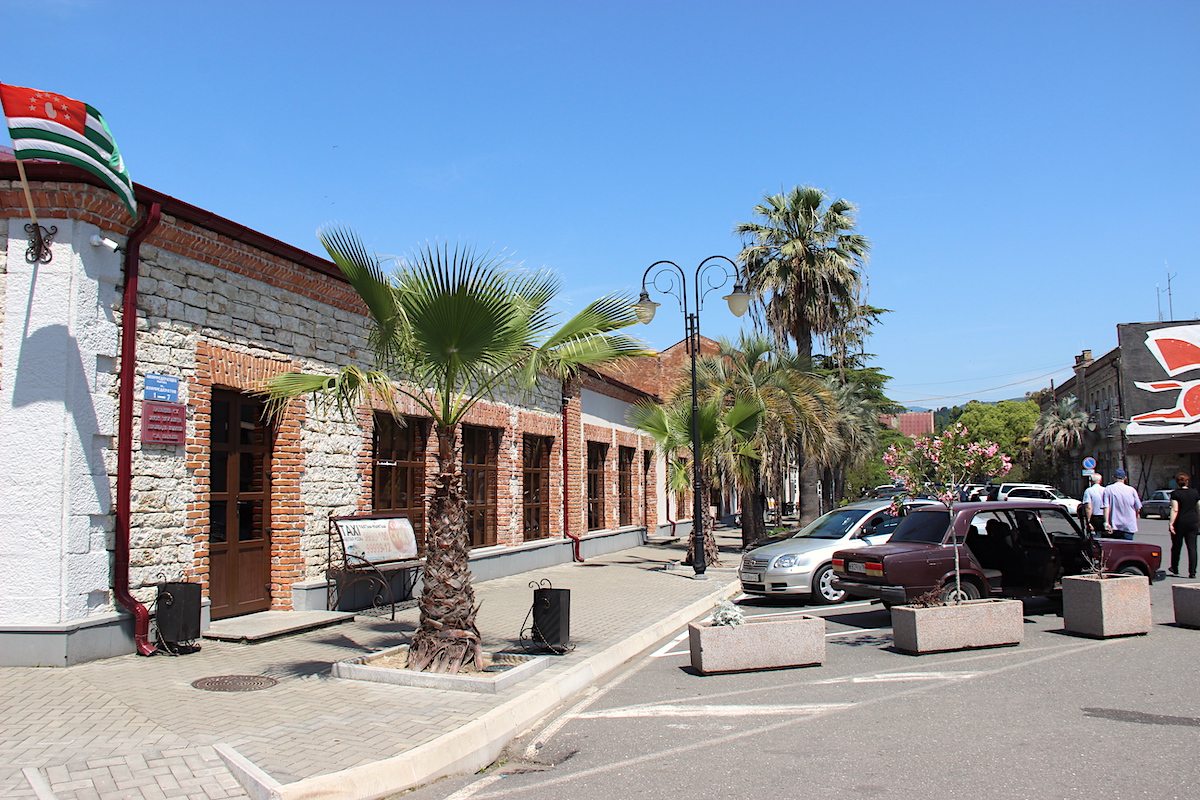Anti-crisis farming: two stories from Abkhazia
Abkhazia, where the coronavirus has caused borders to close and the tourist season to come to a halt, is facing an economic crisis.
Some residents of the republic have found a temporary way out by returning to the land.
Taking a lucrative “vacation in nature”
Five friends, all residents of Sukhum, have found a way to ‘vacation’ while picking up shovels, rakes and hoes. This is usually the kind of vacation favored by retirees. But the oldest among them, Alias Avidzbe, is only 35. It was he who convinced his friends to go into agriculture.
The pandemic, the border closings, and the threat of being left without a salary forced many young people to wonder how they would feed their children in winter. Alias, for example, has three kids.
• Op-Ed: Crisis in Abkhazia unavoidable. How the authorities deal with it is vital
So they decided to take the same path as their parents did in the 90s during the blockade (after the Georgian-Abkhaz war of 1992-93), and to start cultivating the land. Alias found that one of his relatives had an extra plot of land.
“We used to grow tangerines here, but the trees grew old, and my relative, who owns this plot in the village of Gumista, allowed me to set up a garden here,” says Alias.
In spring, when he arrived, the garden was no more than a dense thicket of thorns. The guys manually cleared the land of weeds and then all pitched in to buy a rotary tiller, which plowed the land.
On one and a half hectares of land, they planted everything they could get their hands on: cucumbers, tomatoes, eggplants, peppers, melons, watermelons and all kinds of greens.
Every evening, after a hard day’s work—some at the offices, others at the rifle club, where they work as instructors, they came to water or weed the plant beds, and eventually, to harvest the first crop.
“For us, this was our first farming experience, and we can already see that we will be able to produce large yields,” says Alias.
He says that it is already clear that the harvest will be much larger than what is needed just to fulfil their own families’ needs, so some of the crops will be distributed to friends and acquaintances. And next year, they plan to build greenhouses and grow crops for sale.
They don’t use chemical fertilizers. Alias says they feed plants exclusively with manure and compost.
“Our land is very fertile, and everything grows well on it. There is no need to poison it with chemicals. Especially now that organic farming is so popular,” he says.
From tomatoes to lavender

Olga Prokopova shares the same opinion. Her plot of land is located in the foothills of Sukhum. In her greenhouse, she has several varieties of cucumbers and tomatoes. This year, she is growing the yellow variety, as they are more sweet and fragrant.
Potatoes, Japanese cabbage and many kinds of herbs are grown in the open soil.
Olga took up farming four years ago, but started considering the need to expand significantly after the pandemic and the closure of the border with Russia.
“We can fully support ourselves. Not just with corn and beans. I see how well broccoli, arugula, and other types of rare but fashionable plant species grow. And all without fertilizers,” says Olga.
In her garden, Olga grows only special species of plants, no hybrids. And no fertilizers, only compost.
“In the spring, I fertilized the flower bed with fermented manure, and then I saw a tomato bloom among phloxes. Can you imagine how much this seed has gone through, how it has grown stronger?” says Olga.
Many plants in Olga’s garden have already been reserved. She will give her iris seedlings to customers in the spring, and there are soapmakers, confectioners and florists all after her lavender.

“I have now ordered 350 lavender sprigs to decorate a wedding table. And recently, some girls ordered some for their lemonade. They are one of my most in-demand plants,” she says.
Lavender is one of her favorites. Olga has a plan to sew children’s toys and fill them with lavender, because the aroma of this plant tends to calm the nervous system.
“When my grandchildren cannot fall asleep, I rub a lavender twig in my hands and simply stroke them on the head,” Olga says.
And she speaks with even greater enthusiasm about her spices: rosemary, thyme and horsemint, which she only began to grow this year. Olga shares her knowledge on how to grow, dry and consume plants on her social media pages.
“To be honest, I barely took notice of the pandemic or the crisis due to the closed borders, thanks to my herb garden,” says Olga. “Everything that we need to live lies under our own feet.”
In the future, Olga has plans to grow even more organic vegetables and greens and give them to local vendors, plant even more spices and herbs, find new recipes and share them, share photos of her garden, and even build a waterfall.
As Olga says, if a person has a strong enough desire and is ready to work, anything can be done, “even if you have nothing.”
The terms, place names, opinions and ideas in this article do not necessarily coincide with the opinions and ideas of JAMnews or its individual employees. JAMnews reserves the right to remove comments that are deemed offensive, threatening, violent or ethically unacceptable for other reasons.

This project is funded through the Democracy Commission Small Grants Program, U.S. Embassy Tbilisi. The contents of this publication are those of the Author(s) and do not necessarily represent the views of the Department of State.



















